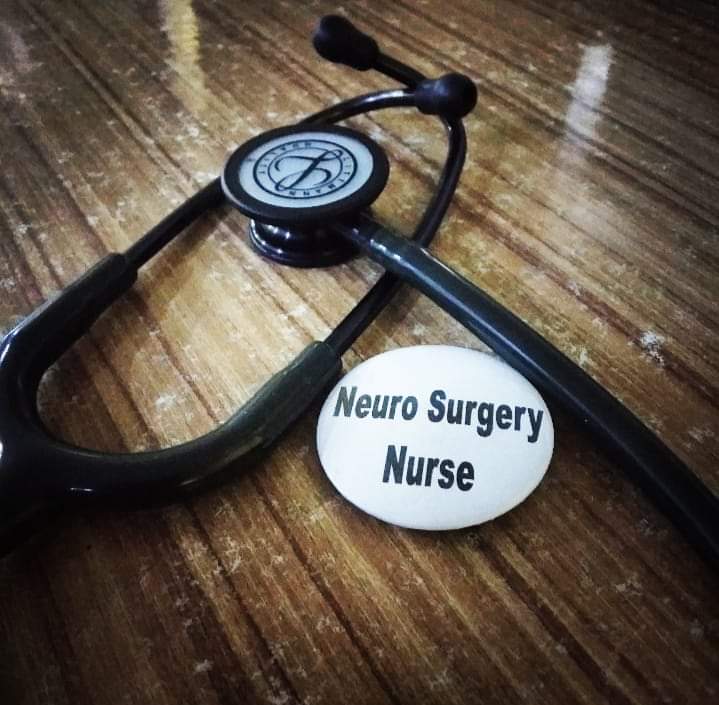Neuro Emergency Nurse – How the patient gets treatment in the emergency ward?
After completion of my B.Sc.Nursing studies and after accomplishing my license as a Registered Nurse of my country (Nepal), my professional nursing career got started. I got the opportunity to kick off my nursing career first as a Neuroemergency nurse.
What is an Emergency Department?
The term emergency itself explains its vague meaning. It directly points “serious situation” or something that is “Urgent“. Emergency refers to such department of an organization where the victim/patient with serious illness arrives or those who can’t delay the treatment process to be carried out after waiting for the appointment of a doctor.
Patients visit an emergency department without any appointment and hence emergency service is available for 24 hours. Commonly, patients with life-threatening conditions arrive at an emergency department. Common cases that appear in an emergency ward includes :
- Severely injured patients through accidents
- Physical assault or any traumatic injury
- Burn
- Shock
- Severe pain in the abdomen, severe headache or pain in any other body parts
- Snakebite or any other insect bites
- Fracture
- Poisoning
- Foreign body in nose, ear, throat
- Shortness of breath
- Heart block
- Myocardial Infarction(patients complaining of severe chest pain)
- Seizure disorder
- Epistaxis, etc.
Neuro Emergency – How Patient get treatment?
Neuro Emergency nurses are those nurse who works in an emergency department of an organization/hospital whose primary goal is to manage the problems of patients with neurosurgical illnesses.
Neuro emergency nurses take care of neurosurgery patients from the grassroots level(i.e. monitoring vital signs, providing emergency medication, dressing of any injuries over the body ).
Communication plays a vital role in taking care of any kind of patient, as it helps in maintaining a therapeutic relationship with the patient and visitors as well. The ability to gain a detailed history regarding the root cause of illness can be a strong point for proceeding the treatment of the patient.
In an emergency department, the tasks carried out by Neuroemergency nurses are as follows;
1) Neuroemergency nurses monitor the vital signs(TPRBP) of the patient. It includes :
- Temperature
- Pulse
- Respiration
- Blood pressure
- Oxygen saturation
- Weight(especially in children )
2) If the patient’s oxygen saturation is not maintained in room air, the patient is placed under an oxygen mask with a proper level of oxygenation.
3) Along with monitoring the patient’s vital signs, the fundamental thing that should be checked in neuro patients is GCS level (Glass Gow Coma Scale). If the patient has a poor level of GCS, he\she should be intubated.
What do you mean by Intubation?
[ Intubation: Intubation/Tracheal intubation is the procedure in which a plastic tube is inserted through the mouth into the windpipe(trachea) of a patient to maintain oxygen saturation and to administer certain drugs. This procedure is usually carried out in severely injured patients, polytraumatic patients, patients who have poor GCS level or anesthetized patients in order to facilitate ventilation of lungs. In simple words, intubating a patient means keeping a patient on a ventilator].
5) After examination by an emergency medical officers, emergency drugs are administered for the purpose of emergency management (i.e. to relieve pain and discomfort as per patients complain and subside pain in order to carry out further investigations).
Usually, the neurosurgery patients have a complaint of :
- Severe headache,
- Nausea and vomiting,
- Dizziness,
- Hemiplegia, quadriplegia, paraplegia,
- Backache,
- Inability to move upper/ lower or both extremities
- Loss of consciousness,
- Dysarthria,
- Blurring of vision etc.
7) The diagnosis of the problem is a crucial thing for initiating treatment. Hence, we can say that that investigation is the key thing amongst all the processes as they help in the accurate diagnosis of the disease or problem. Investigations like CT scan of different body parts (CT Head, CECT Abdomen and Pelvis, CT C-spine, X-Ray C-Spine, DL-Spine, LS-Spine as well as X-Ray of other body parts.
In the same way, if the problem is not diagnosed through these investigations, MRI of various body parts is carried out. Blood investigations are the routine procedures performed in all the patients with several problems/illnesses ).
8) After reporting of all the investigative procedures, neuro emergency nurses notify to the neurosurgery doctors regarding the case.
9) As per the reports of the investigations, proper counseling is done to the patient party.
10) In an emergency, the ward patient is kept for a certain time unless the patient’s problem is diagnosed. After proper diagnosis of the disease condition, the patient is shifted to the related department and hence, Neuroemergency nurses prepare the patient to shift to certain ward maybe an I.C.U, Ward or Operation Theatre as per doctors ordered.
Preparation of the patient includes administration of the drugs as per neurosurgery doctors order. If the patient is unable to void him/herself, catheterization is required. If the patient is unable to swallow or eat, NG tube insertion should be done.
11) The skill of proper communication is required in the process of taking consent from patients and visitors for the purpose of proceeding the treatment. Explanation of the patient’s condition, risks, and further treatment process should be done using non-medical terms.
12) After shifting the patient to the associated ward, the role of neuro emergency nurse ends.
I myself feel fortunate that my first exposure in the clinical field was an emergency department. Working in an emergency department builds up confidence levels.
Being a neuro emergency nurse, I learned :
- To work in a rush situation without being panic.
- To manage emergency cases by being calm and polite in any kind of panic situation.
- To handle the visitors and learned proper counseling technique
- To identify the cases which should be given higher priority and hence learned to work in a triage.
- I got the chance to gain good knowledge regarding emergency drugs including their indications, contraindication, and side effects.
- I developed the skill of utilizing locally available resources in the absence of required material in an emergency situation.
Last but not least, I feel so victorious and glad to introduce myself as a Neuro Emergency Nurse.
A proud neuro emergency nurse. 🙂


Leave a Reply